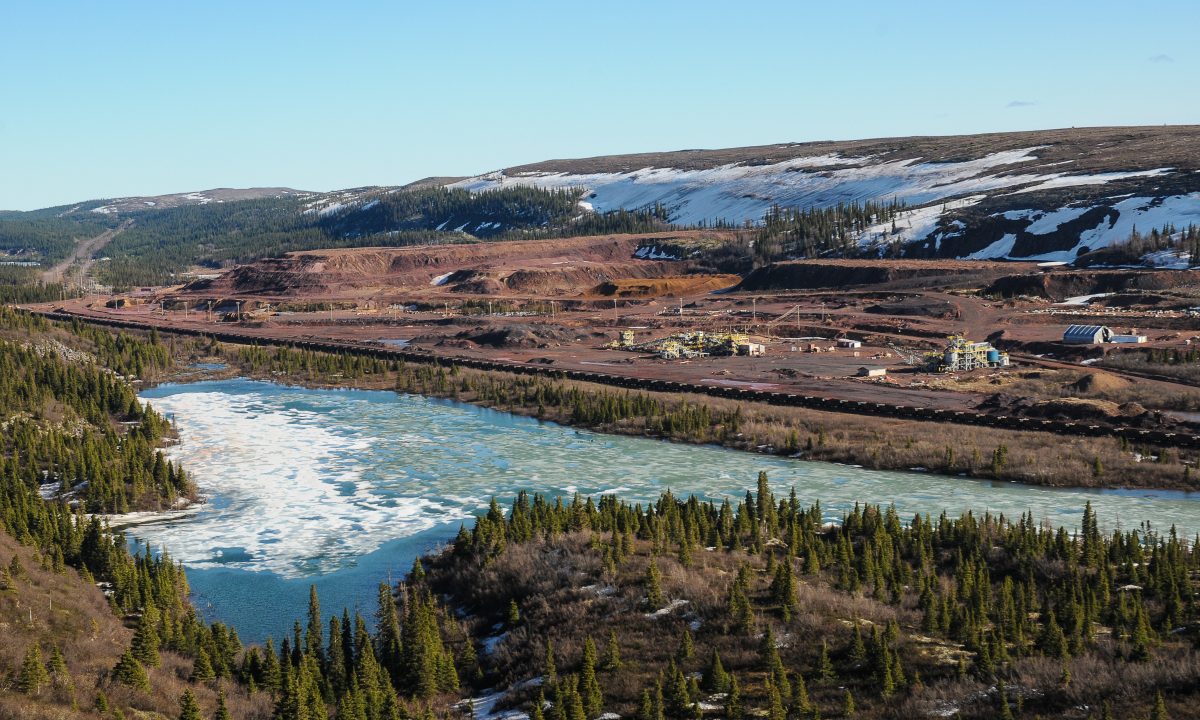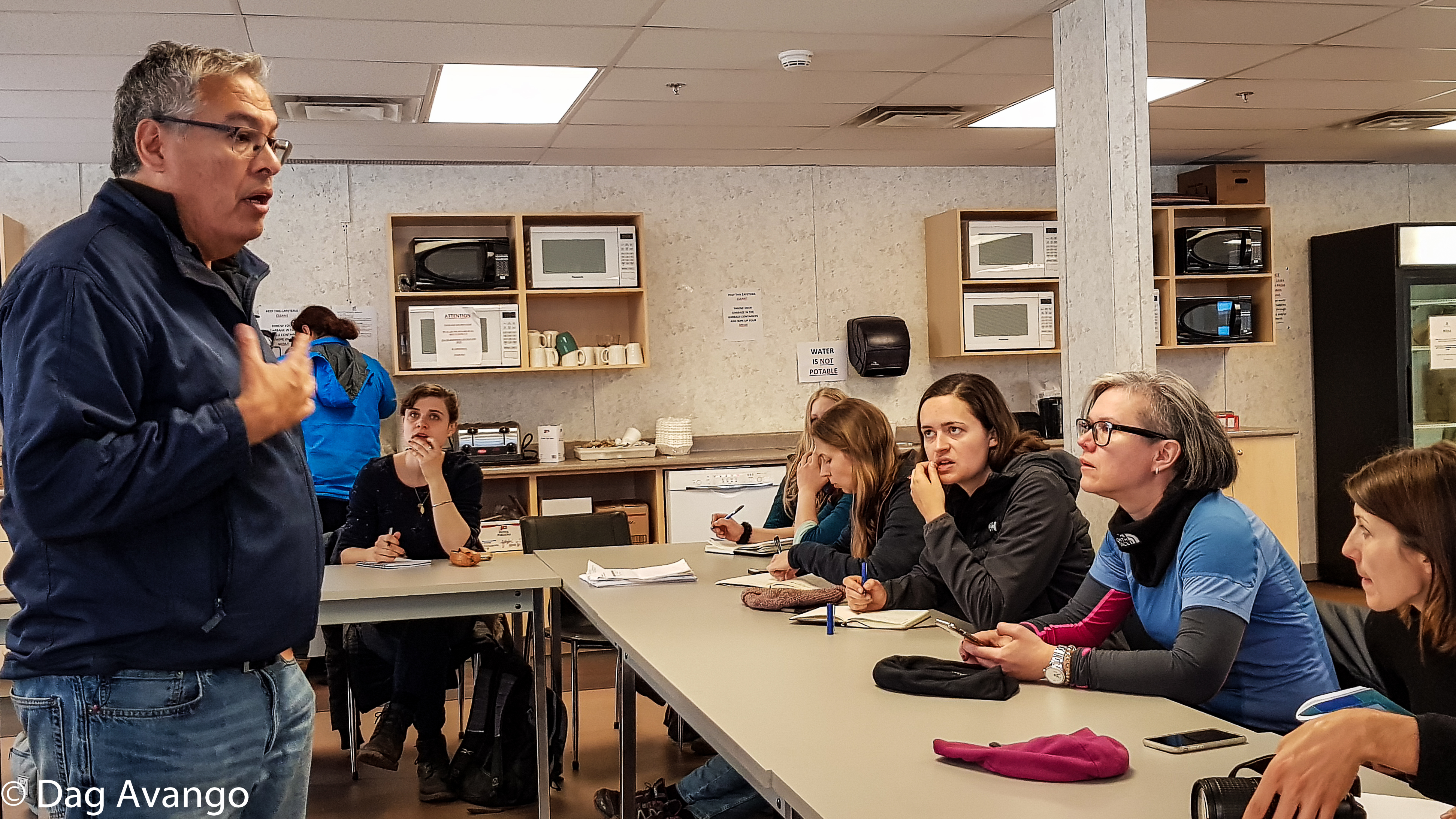Travelling workshop and PhD student course in Canada – building interdisciplinary collaboration
Between May 26 and June 4, PhD students and researchers from REXSAC and MinErAL carried out a travelling workshop and PhD student course entitled Northern mining towns in transition. MinErAL is a network on Mining Encounters and Indigenous Sustainable Livelihood, funded by the Canadian Social Sciences and Humanities Research Council (SSHRC), which REXSAC has collaborated with for the last two years.
The REXSAC and MinErAL researchers gathered in coastal town Sept-Îles on May 26. Over the following nine days we travelled by railroad and bus to the inland mining settlements Schefferville, Fermont, Labrador West and Wabush. These towns were established as part of giant socio-technical-ecological systems for iron ore extraction in the post-world war 2 period. The four towns has developed differently over the second half of the 20thcentury, making them useful lenses for comparing processes of change and their impacts in mineral rich areas in the north.
The rationale for the workshop/PhD course was the boom and bust character of extractive industries in the north, with phases of rapid growth and mine establishment when global demands for minerals are high, and abrupt decline and even closure when prices go down. The business cycle of mining poses particular challenges to communities Arctic, where distances are great, alternative economies fewer and where the environmental and social imprints of mining often are significant. How Arctic communities based on extraction can deal with abrupt change is a key research problem both for REXSAC and MinErAL. The workshop/PhD course allowed us to not only gain new knowledge on the variety of ways northern mining communities has dealt with change, but also new insights on how differences between the Canadian and Nordic historical and institutional contexts play out in periods of change.
The Northern mining towns in transition event was also an example on the way REXSAC and MinErAL works to build interdisciplinary collaboration – field based workshops. By bringing together scholars from different research tasks, work packages and different disciplinary backgrounds, focusing on joint research problems at the same sites, we are able to learn from each other and reach understandings we wouldn’t have if working in separately. The workshop/PhD course was the second out of four such field based workshops that REXSAC engage in. The first took place in Gällivare, Norrbotten, in 2017 (see previous blog by Sandra Fischer https://www.rexsac.org/blog/nautanen-field-work-confessions-new-phd-student/). The third one will take place in southern Greenland in August 2019 and a fourth in May 2020 in Northern Fennoscandinavia.
The PhD course consisted of lectures carried out on the train rides, literature discussions, site visits, and different interactions with local actors and which in different ways related to the ongoing changes in the mining settlements we visited, and north Canadian mining in general. The course addressed topics such as Indigenous rights, the design of built environments in mining settlements, the evolution of labour arrangements from company towns to modern fly-in fly-out camps, mining governance, environmental assessments, as well as impact and benefit agreements. They also dealt with closure, environmental remediation and heritage making. For a detailed description of the PhD course, see blog by REXSAC PhD student Christian Fohringer https://www.rexsac.org/blog/rexsac-students-researchers-join-mineral-8-day-summer-school-northern-quebec-labrador-canada/.
In May 2020, REXSAC plans to arrange a follow-up field based workshop and PhD course in northern Sweden and Norway. The objective of this event is to enable the participants in the Northern mining towns in transition event in Quebec and Labrador to deepen their insights from comparing the north Canadian and Fennoscandinavian contexts. The outcome of these two field based workshops/PhD courses will be a series of articles comparing Nordic and North American Arctic mining communities in transition, co-authored by researchers and PhD students in REXSAC and MinErAL.
Participants in the REXSAC workshop and PhD student course in Canada 2019 were:
Élise Lépy, Dag Avango, Albina Pashkevich, Lill Rastad Bjørst, Arn Keeling, Sandra Fischer, Chris Fohringer and Jean-Sébastien Boutet.
Dag Avango, Prof. of History, LTU/Managing director of REXSAC at KTH

Photos: Dag Avango




